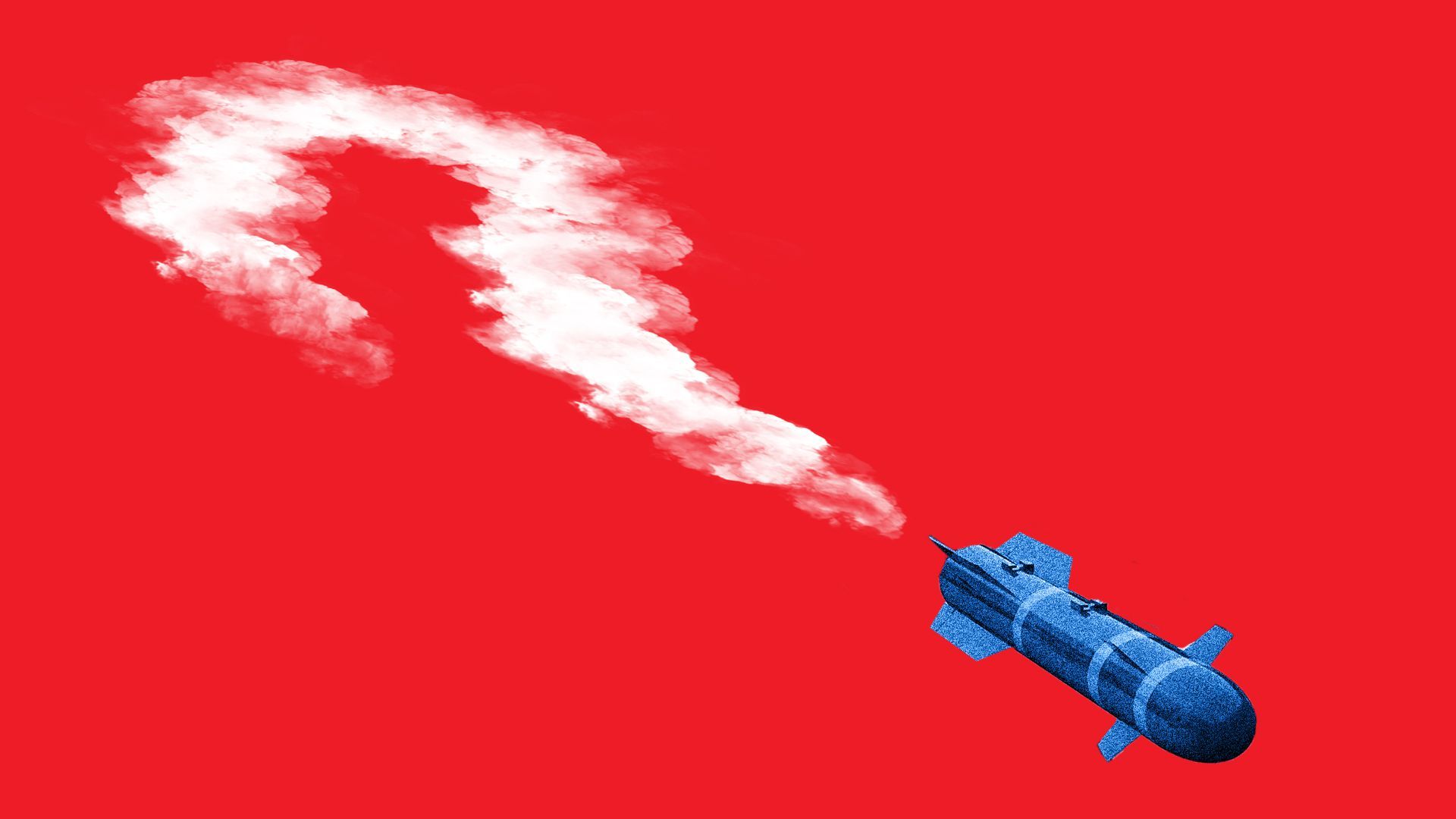
Dave Lawler AXIOS May 21, 2020 - World

Illustration: Rebecca Zisser / Axios
The U.S. is moving to withdraw from Open Skies, a 1992 treaty that allows NATO countries and Russia to surveil one another from the air to prevent the risk of military conflict.
Why it matters: This is the third major international defense agreement President Trump has abandoned, following the Iran nuclear deal and the Intermediate Nuclear Forces treaty. The fate of another highly consequential treaty, New START, remains in the balance.
How it happened: "Trump administration officials and some conservative lawmakers have long argued that the Russians have used the Open Skies accord to gather intelligence on U.S. sites while restricting access for Western overflights of Russian territory," per WSJ.
What to watch: New START, the last treaty constraining the U.S. and Russian nuclear arsenals, is due to expire in February.
Marshall Billingslea, Trump's arms control envoy, announced talks with Russia today aimed at bringing China into a new trilateral agreement.
But he expressed skepticism that Russia could be trusted to comply with any treaty, and he would not discuss the idea of extending New START before the Feb. 5 deadline without Chinese participation.
We know how to win these races and we know how to spend the adversary into oblivion. If we have to, we will, but we sure would like to avoid it," Billingslea said in a discussion hosted by the Hudson Institute.
Trump could take the lid off the world's largest nuclear stockpiles

Dave Lawler AXIOS Apr 30, 2020 - World
There are three truly existential threats to humanity: pandemics, climate change and nuclear weapons.
Why it matters: COVID-19 has rightfully absorbed the world's attention and will for months to come. But the last treaty constraining the world’s largest nuclear arsenals is set to expire in nine months.
Where things stand: The Trump administration has expressed little urgency over the looming expiration of New START (Strategic Arms Reduction Treaty), which comes two weeks after the next presidential inauguration on Feb. 5.
Trump could take the lid off the world's largest nuclear stockpiles

Dave Lawler AXIOS Apr 30, 2020 - World
There are three truly existential threats to humanity: pandemics, climate change and nuclear weapons.
Why it matters: COVID-19 has rightfully absorbed the world's attention and will for months to come. But the last treaty constraining the world’s largest nuclear arsenals is set to expire in nine months.
Where things stand: The Trump administration has expressed little urgency over the looming expiration of New START (Strategic Arms Reduction Treaty), which comes two weeks after the next presidential inauguration on Feb. 5.
The treaty limits the long-range nuclear weapons programs of the U.S. and Russia, and it's verified through regular inspections.
It was signed in 2010 to replace the 1991 START and could be extended for up to five years by mutual assent (congressional approval is not necessary).
Russia had previously called for renegotiation, but it's now urging for an extension without preconditions.
The U.S. wants to negotiate a new deal instead, but time is running out.
The Trump administration has three primary concerns about extending New START, according to Frank Klotz, the former U.S. Department of Energy undersecretary for nuclear security (2014–2018).
It doesn’t cover tactical nuclear weapons. Russia has more short-range, lower-yield weapons and more ways to deliver them.
It doesn’t cover the new nuclear delivery systems Russia is currently developing.
It doesn’t constrain China, which is significantly expanding its nuclear capabilities.
The third point looms largest for the Trump administration.
The administration is concerned that extending New START would undermine its hopes of a trilateral deal involving China, Foreign Policy reports, citing a State Department document.
Marshall Billingslea, Trump's newly appointed special envoy for arms control, has been tasked with striking a new deal that restricts both of America's "great power" competitors.
Between the lines: China has no intention and little incentive to join such a deal, Rose Gottemoeller, the lead U.S. negotiator on New START, said Wednesday at an event hosted by the Arms Control Association.
By the numbers: The U.S. and Russia together have an estimated 91% of the world’s nuclear warheads, and both countries have 20 times as many as China.
Gottemoeller agrees that China should be brought into the arms control framework and that there are thorny issues to be discussed around tactical nuclear weapons and missile defense systems (a top Russian concern).
But she contends that they can’t possibly be negotiated before February — particularly amid a pandemic and U.S. general election.
On the one hand: Some China hawks see little reason to agree to an arms control deal that does not involve America’s biggest geopolitical adversary.
On the other: Adm. Mike Mullen, the former chairman of the Joint Chiefs, says New START provides “continuous stability in an increasingly uncertain world."
The worst-case scenario, Mullen says, is an "arms race that none of us can afford.”
https://plawiuk.blogspot.com/2020/05/trump-to-pull-us-out-of-third-arms.html
TRUMP IS DOING PUTIN'S BIDDING BY WITHDRAWING FROM THESE NUCLEAR DETERRENT AGREEMENTS
PUTIN AND RUSSIA HATE (ALL VIOLATIONS ARE RECENT UNDER PUTIN)
No comments:
Post a Comment